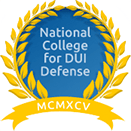
Clifton NJ Receiving Stolen Property Lawyers
The offense of receiving stolen property is set forth at N.J.S.A. 2C:20-7 and is a component of New Jersey’s comprehensive legislative scheme to address all forms of theft charges. Under N.J.S.A. 2C:20-7, it is a criminal offense to knowingly receive or transport movable property of another knowing that it has been stolen, or believing that it is probably stolen. Prosecution under this offense will typically hinge on the mens rea of the accused, that is, whether or not he knowingly committed the offense. The consequences of a conviction can be dramatic as the penalties provided under this law can be severe. It is in your best interests to speak to an attorney if you were arrested for receiving stolen property since, at a minimum, a conviction will result in a 2C record that will appear on a criminal background check. And the consequences of a conviction are likely much worse than this, especially if you are facing an indictable offense (i.e. New Jersey’s version of a a felony) of the fourth degree, third degree or second degree. Don’t lose the opportunity to avoid a criminal record, fines, and even jail. Call us for a free initial consultation and we will be happy to assist you in finding the best route to win and/or minimize the ramifications of this charge. An attorney is available now at 862-203-4070 to assist you.
How Does The Prosecutor Prove A Receiving Stolen Goods Offense?
To convict a defendant of Receiving Stolen Property, the Prosecutor must demonstrate, beyond a reasonable doubt, that:
- The property was the property of another;
- That the property was stolen;
- That the defendant knew that the property was stolen or believed that it probably had been stolen;
- The the defendant acquired control, possession, title or lent on the security of the property or brought it into the State; and
- That it was done knowingly.
Under N.J.S.A. 2C:20-7, the Prosecutor must prove that the defendant either knew that the property was stolen or believed that the property was probably stolen. The Prosecutor may prove this knowledge or belief through inferences based on the evidence. Under the Criminal Code, the law presumes that the defendant possessed knowledge where any of four (4) scenarios exist. First, knowledge is presumed where the defendant is in possession of two or more items of property stolen on two or more occasions. A presumption also exists where the defendant received stolen property in another transaction within the year preceding the transaction with which the defendant is now charged. The third presumption arises if the defendant is in the business of buying and selling the type of property in question and the defendant acquired the property without making reasonable inquiry that the person from whom defendant obtained it had a legal right to possess and dispose of it. The fourth and final statutory presumption arises if the defendant is found in possession of two or more defaced access devices. An access device could be a telephone calling card number, credit card number, account number, mobile identification number, etc.
What Constitutes Possession Under N.J.S.A. 2C:20-7?
Possession signifies purposeful control and dominion, coupled with the ability to physically affect an item for a period of time. There are two types of possession under the law, actual possession and constructive possession. Actual possession, which is sometime referred to as manual possession, occurs where the defendant has physical control over the object. Constructive possession exists where the defendant has the ability and intention to exercise control over the item although it is not on his physical person.
How Do You Determine the Grade of a Receiving Stolen Property Offense?
The degree of crime that an individual faces for Receiving Stolen Property hinges on the value of the property involved. If the value of the items involved is $75,000 or more, then the charge will be Second Degree Receiving Stolen Property. If the value of the items involved is between $500 and $75,000, the accused will face a Third Degree Receiving Stolen Property offense. It is Fourth Degree Receiving Stolen Property if the value is between $200 and $500. For property with a value of less than $200, it is a disorderly persons offense of receiving stolen property.
What are the Penalties for Receiving Stolen Property?
Second degree receiving stolen property carries between five (5) and ten (10) years in prison. A third degree receiving stolen property involves up to five (5) years in prison. The jail exposure is eighteen (18) months for a fourth degree receiving stolen property. A disorderly persons charge of receiving stolen property can result in up to six (6) months in jail. The maximum fine is $150,000, $15,000, $10,000, and $750, respectively, for each of the aforementioned grades of this offense.
Wayne NJ Receiving Stolen Property Attorneys
The Law Offices of Jonathan F. Marshall has been representing clients charged with various theft related offenses including theft by deception, receiving stolen property, burglary, carjacking, armed robbery and shoplifting in Passaic County for over a decade. If you or a loved one has been charged with with a criminal offense in Totowa, Passaic City, Paterson, Wayne, Clifton or Hawthorne, we cane help. A member of our defense team is available now to address more detailed questions or to discuss representation. An attorney can be reached at 862-203-4070.








